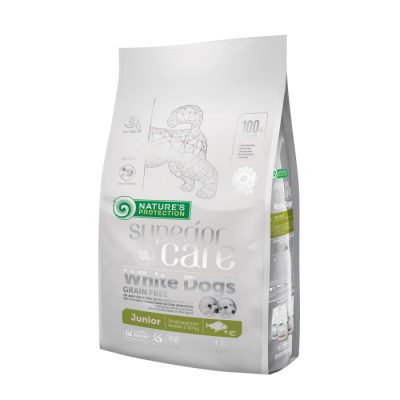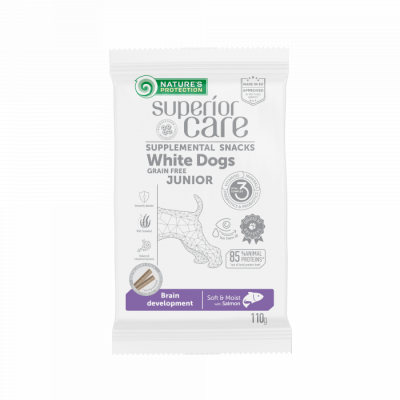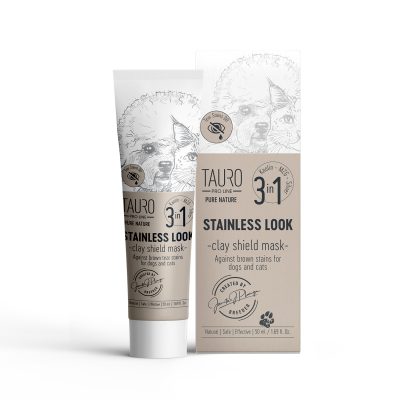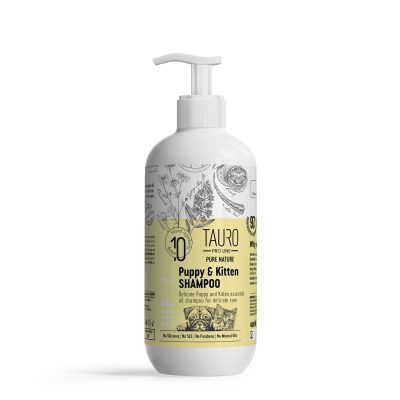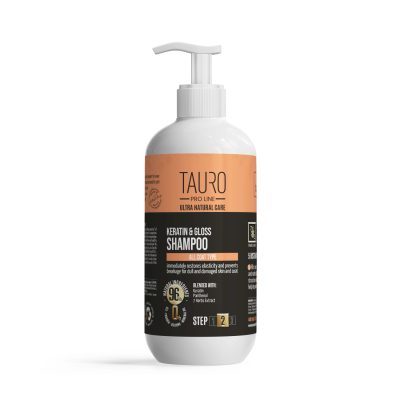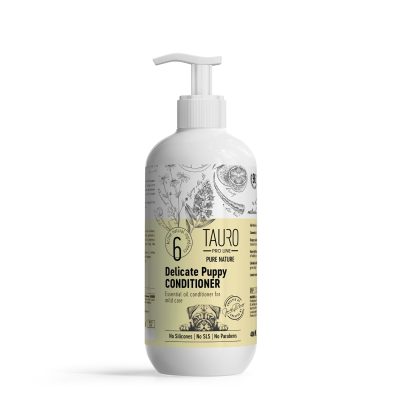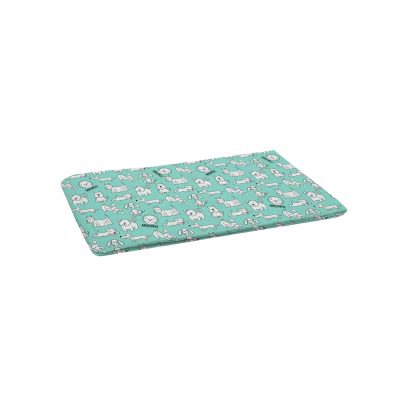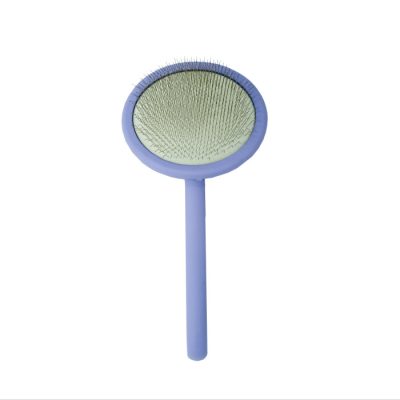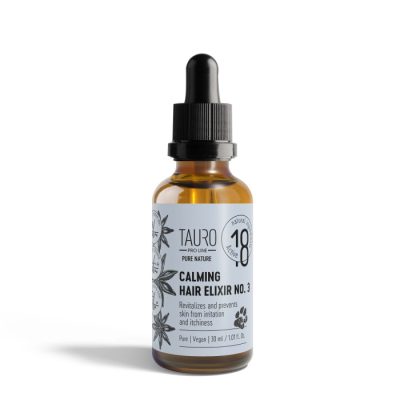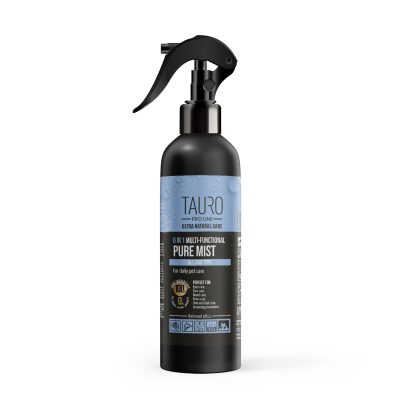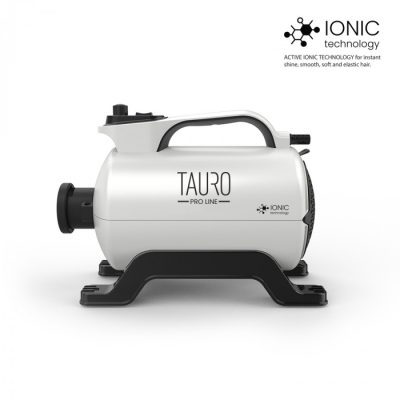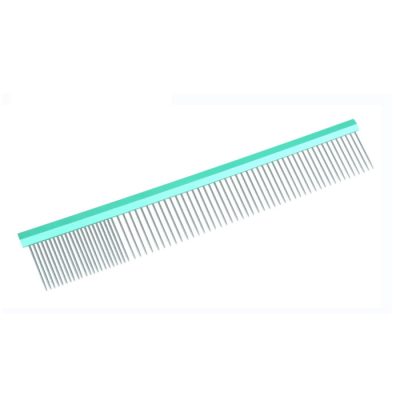BICHON FRISE
Dog breed characteristics & care
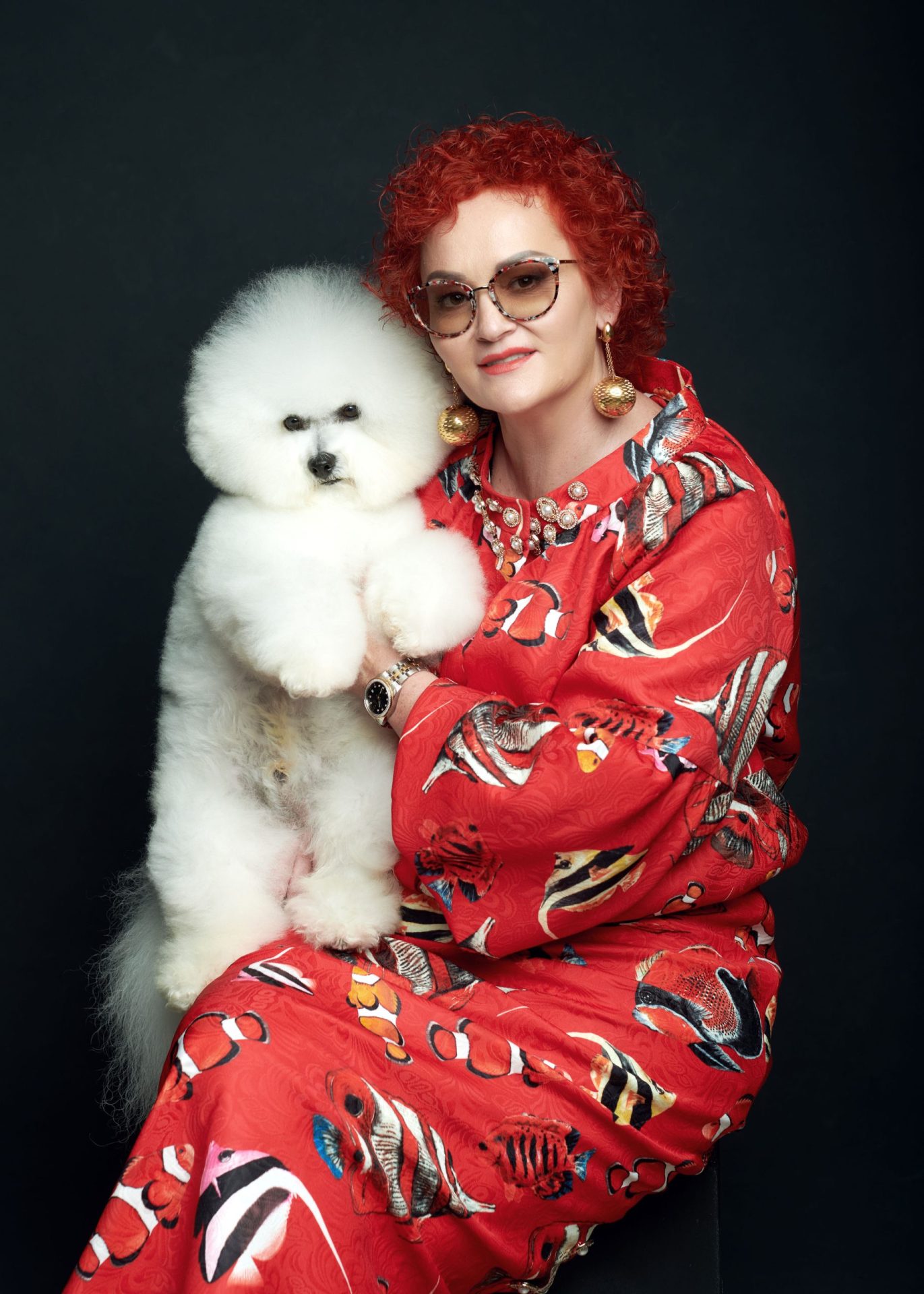
Table of Contents:
CHARACTER
APPEARANCE
BREED CHARACTERISTICS
HEALTH, CARE, TRAINING
PAPERS PROVE THE BLOODLINE
DOG WITHOUT PAPERS
NUTRITION
Frequently Asked Questions
The Bichon Frise is a small, decorative breed of dog. It has a cute appearance and is higly intelligent. Bichon Frise dogs have all the qualities of an ideal family dog and a strong desire to share their love with those around them.
The small but sturdy and resilient Bichon Frise stands among the world's great "personality dogs". Since Ancient times, these irresistible canine comedians have relied on charm, beauty, and intelligence to weather history's ups and downs. The breed's glory is a white hypoallergenic coat, plush and velvety to the touch, featuring rounded head hair that sets off the large, dark eyes and black leathers of the nose and lips.
Bichons Frise are adaptable companions who get on well with other dogs and children. Their size make them ideal city dogs. Bichons train nicely and enjoy performing for their loved ones. Finally, there's the happy-go-lucky Bichon personality that draws smiles and hugs wherever they go.
Bichons Frise are adaptable companions who get on well with other dogs and children. Their size make them ideal city dogs. Bichons train nicely and enjoy performing for their loved ones. Finally, there's the happy-go-lucky Bichon personality that draws smiles and hugs wherever they go.
CHARACTER
Bichon Frise are active, playful and remain so throughout their adulthood. They are friendly, loving dogs, that adore human company, they get along with kids and other pets and even strangers. They are not an aggressive breed. These dogs love all members of the family equally, without excluding one owner. Although Bichon Frise dogs know how to be alone, they prefer to spend time in the company of people or other pets. This dog adapts to the owners activity level, it can be endurant if the owner prefers an active lifestyle, but also it does not mind spending time quietly at home. Although, please note that very long walks, or walks on a difficult terrain are tiring for this dog.
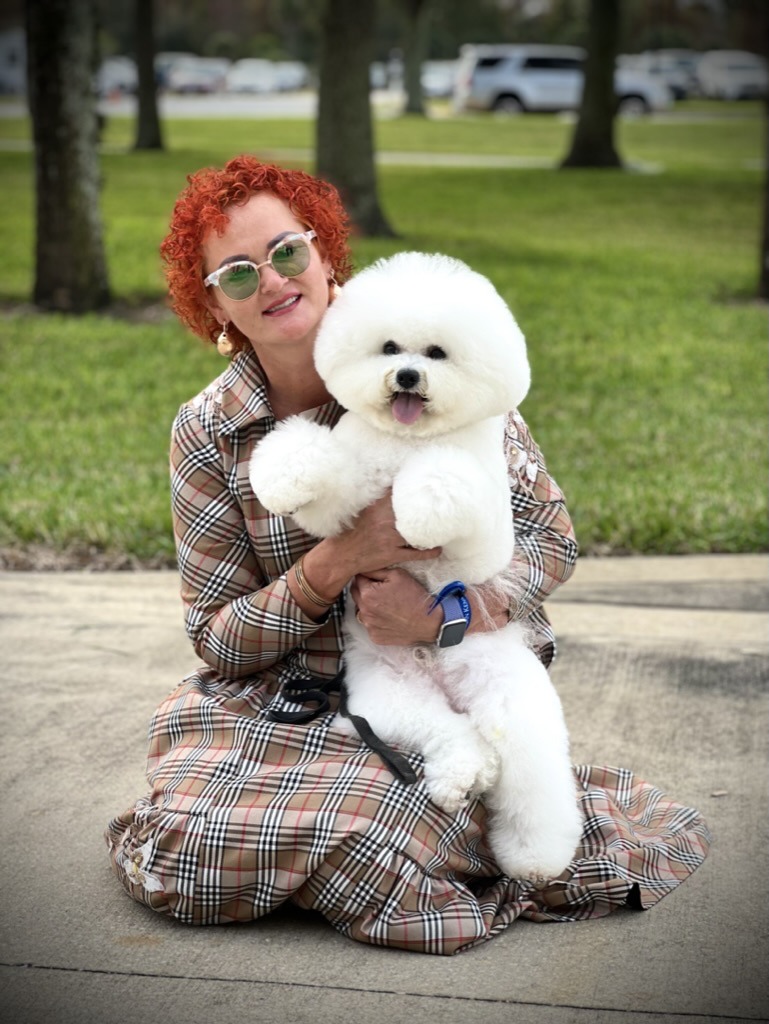
APPEARANCE
Bichon Frise fall into the category of small breed dogs. It can grow up to 30 cm in height and weigh up to 5 kg. The front legs are straight, the thighs are rather round. Paws and fingers are strong, nails are mostly white. The tail is raised above the back. The head is round, the forehead is of medium brightness, the jaws are strong, the bite is scissor. The skull is flat, but due to the large amount of dense hair, it appears round. The eyes are round, alert, dark. Small ears hang close to the head, covered with long bristles of hair. The neck is quite long, curved, held proudly outstretched. The coat is snow-white, dense and soft, hair up to 10 cm long.
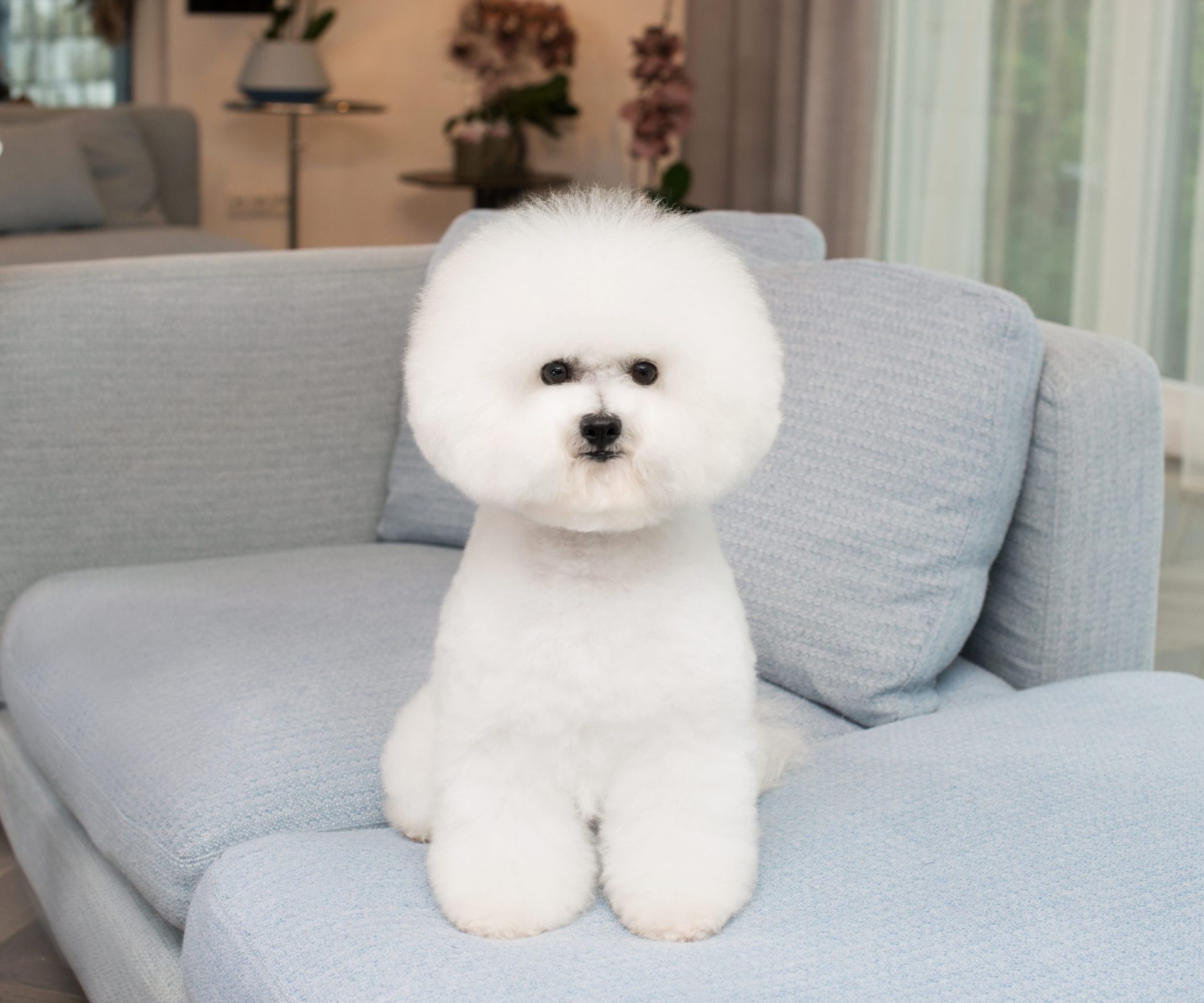
BREED CHARACTERISTICS
Height
Male 23 – 30 cm, Female 23 – 28 cm
Weight
5 – 6 kg
Life expectancy
10 – 15 years
Coat colour
White
Character traits
Lively, brave, friendly, easy to adapt, loyal
Hypoallergenic
Yes
Group
FCI group 9
Origin
Europe
HEALTH, CARE, TRAINING
The Bichon Frise are a healthy dog breed, hereditary health disorders are rare. Like other dogs with a white coat, they require special care. The most common problem is brown spots around the eyes, mouth and on the feet. These problems are usually caused by allergic reactions. It can be avoided by choosing a balanced feed for white dogs and spending time on daily hygiene – cleaning the eyes, regular bathing. About two or three times a year, the coat should be trimmed to prevent it from growing too long (this is best done by a professional dog groomer). Regular dental care is also required to prevent the formation of plaque, tartar, which leads to more complex dental diseases or even tooth loss. Dogs of this breed are receptive to training. They can be taught not only basic obedience commands, but also tricks. The most important thing is proper motivation and turning training into a game.
Main tips how to take care of Bichon Frise:
Main tips how to take care of Bichon Frise:
- do not forget to do eye hygiene every day
- brush the coat few times per week
- bath one time per week
- visit grooming salon one time per month
PAPERS PROVE THE BLOODLINE
- Documents guarantee a lower probability of hereditary diseases
- The documents guarantee that you are buying a noble representative of the breed, which is visible in the genealogical tree
- The documents guarantee that you are purchasing a puppy from a responsible breeder
- You can receive advice from the Kennel team on raising and caring for your pet
DOG WITHOUT PAPERS
- When breeding "unselected" representatives of the breed (dogs without pedigree documents), certain modifications are possible, which can lead to significant changes in the breed's exterior and character
- The puppy might be sick and mentally unstable
- You do not have the opportunity to have consultation with your dog's breeder
- You will not be able to participate in dog shows
NUTRITION
The white coat of a Bichon Frise is like a litmus paper, it quickly indicates nutritional problems. To ensure excellent health and appearance, you need a hypoallergenic, easily digestible, complete dry feed specially created for white-coated dogs. Treats should be chosen responsibly and given in moderate amounts. It is recommended to choose treats for dogs with a white coat.

Frequently Asked Questions
Give your puppy an anti-worm medication every 1 month until they are 1 year old. From the age of 1 year old - give every 3-4 months. If the pet is going to live with other animals and will be having very frequent contact with them, then even when the dog is an adult, give anti-worm medication every 1-2 months. with a repeated treatment after 10 days.
If you give treats from your table or the puppy eats something inappropriate outside, it may start to have diarrhea and/or vomiting. Diarrhea can also be caused by too much food or fatty products. Diarrhea and/or vomiting causes the dog to lose nutrients from the diet, which can lead to the pet feeling weak. To prevent this from happening, supplement the pet's diet with Nature's Protection Microzeogen. It will help remove toxins, regulate the intestinal microflora and help the pet to regain its strength.
Eating feces is not a problem since most young puppies do. However, it carries the risk of contracting various parasites. If your pet eats feces, give your puppy Nature's Protection Stop Stool Eating supplement, which can help to maintain proper stomach acidity and protect the digestive tract from irritation, which often causes pets to eat feces.
There can be several reasons for it: there might be some hair that have been left in the coat after the coat has been trimmed that tickle the skin. In this case, comb the puppy well, if necessary - bathe it again. Due to experienced stress, for example, after a change of environment, first car journey, etc. Allergies - there may be allergies to food, dust (which usually collects in the carpets), medicine, allergy inducing treats. If the scratching is of nervous nature, vaporize essential oils with calming properties (lavender, special essential oil blends) by adding a few drops to an aromatherapy diffuser. If the dog is scratching for a longer time, look for the source of the allergy and eliminate it. Bathing with Tauro Pro Line Elixir No. 3 will help soothe skin irritation. Add 15-20 drops to shampoo or conditioner and bathe the pet. A skin-soothing treatment in an ozone bath can also help. Procedures are performed in all KIKA grooming salons and in the Tauro Grooming Academy SPA salon in Kaunas.
There is no 100% protection, but you can use 5 levels of protection consisting of 1 veterinary remedy and 4 natural remedies to achieve the best protection. Veterinary remedy can be drops, which protect up to 1 month or a chemical collar, which protects up to 8 months. Natural remedies can include a natural collar, essential oils or their mixtures, an ultrasonic pendant, sprays, foams for coat and shampoos. These tools should be used often or every time you take your pet for a walk.

